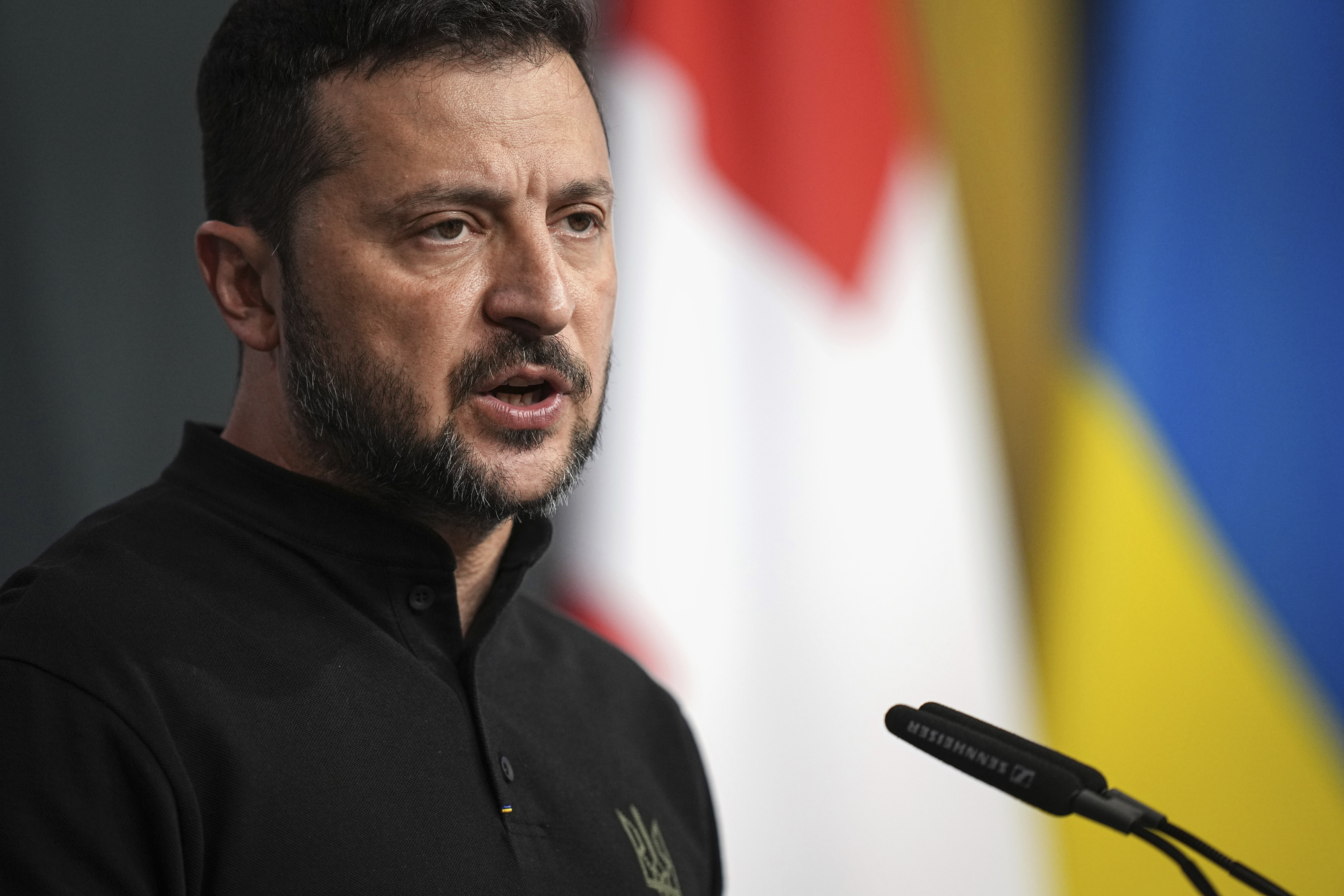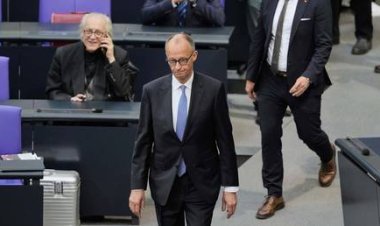Experts Caution That Ukraine's 'Bridge' to NATO Could Pose Risks
Some foreign policy experts want Ukraine to move closer to joining the alliance, while others say it would rupture the military bloc.

The possibility of Ukraine’s future NATO membership is being hotly debated ahead of the alliance’s upcoming summit in Washington.
Dozens of foreign policy experts on Wednesday called on NATO members to avoid advancing toward Ukrainian membership at the summit, warning that it would endanger the U.S. and allies and rupture the coalition. If Ukraine is admitted, the group argues, Russia attacking Ukraine in the future would trigger NATO’s Article 5, which calls on allies to defend the member attacked.
The Article 5 argument is common among those opposing Ukraine’s membership, but such a public stance from more than 60 analysts provides a sneak peek at the arguments likely to be levied at the three-day event starting on Tuesday.
“The closer NATO comes to promising that Ukraine will join the alliance once the war ends, the greater the incentive for Russia to keep fighting the war,” reads the letter, obtained by POLITICO. “The challenges Russia poses can be managed without bringing Ukraine into NATO.”
Moving Ukraine toward membership could backfire, the letter continues, “turning Ukraine into the site of a prolonged showdown between the world’s two leading nuclear powers” and play into Russian leader Vladimir Putin’s narrative that it’s Moscow versus the West. The letter was organized by William Ruger, president of the American Institute for Economic Research, and Stephen Wertheim, a senior fellow at the Carnegie Endowment for International Peace.
Other analysts aren’t in agreement. Last week, RAND Corp. researchers wrote that allies would benefit from offering Ukraine clarity about conditions for its future membership at the summit. The Atlantic Council has also been pushing for NATO membership for Ukraine, arguing that it would prove to Kyiv that Western support won’t waver.
Think-tankers and college professors aren’t the ones making NATO policy decisions, but they often contribute to the foreign policy debate by writing opinion pieces and hosting panels — especially in the lead-up to and during major events like the upcoming summit.
The Biden administration has refrained from supporting Kyiv’s immediate membership, but multiple top officials recently said a “bridge” into the alliance would be offered to Ukraine during the summit. Officials say NATO will also offer Ukraine a new headquarters to manage its military assistance — a gesture of good faith that the West will have the country’s back for the long term, even if it’s not afforded membership right now.
Writing in Foreign Affairs today, outgoing NATO Secretary General Jens Stoltenberg didn’t explicitly mention Ukraine membership but alluded to Kyiv’s future alongside the alliance and concerns about the matter: “We want to make it clear that we are in this for the long haul. … Stepping up our support does not make NATO a party to this conflict.”
Ukraine isn’t expecting much movement on its membership at the summit. Rather, security guarantees are what they’re looking for.
An official invitation aside, “we also expect specific decisions regarding Ukraine's membership in NATO, in a package with other guarantees of continuity of military aid and increased interoperability,” Olga Stefanishyna, Ukrainian deputy prime minister on EU and Euro-Atlantic integration, told POLITICO last month.
There are already hopeful signs for Kyiv: NATO members agreed to Stoltenberg’s request to keep military funding for the country at $43 billion in 2025, the same level of funding the alliance has provided since Russia’s invasion, Reuters reports. On Tuesday, the U.S. announced a new $2.3 billion security package for Ukraine.
Ukrainians say they need the West to provide additional weapons and ammunition more than they need accession into NATO, according to a European Council on Foreign Relations poll released on Wednesday. Only 22 percent of Ukrainians are in favor of accepting NATO membership in exchange for giving up territory occupied by Russia, while 71 percent are against such a deal.
Ukraine is still pursuing its maximalist objectives against Russia to recapture all of the territory it has lost in the war, Andriy Yermak, President Volodymyr Zelenskyy’s top adviser, told a small group of reporters Tuesday night. Ukraine was “not ready to compromise,” even as some U.S. and European allies quietly whispered to officials in Kyiv that talks with Russia should begin.
Kyiv is willing to negotiate only based on its 10-point peace formula which, Yermak said, would lead to a “just peace” for his country.
Alexander Ward contributed to this report.
Like this content? Consider signing up for POLITICO’s National Security Daily newsletter.
TE TROIB News












